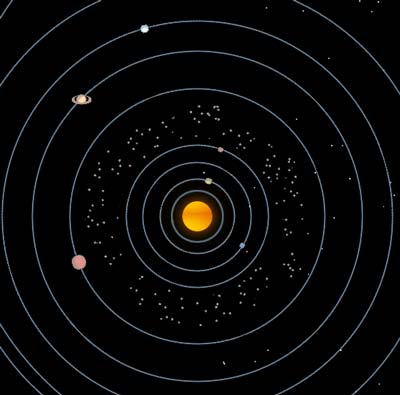Astronomical Tales
Copernicus did not "Revolutionize" Astronomy
We all learned in school that Copernicus was the first to advance the heliocentric or Sun-centered theory that the planets revolve around the sun. But Copernicus, like the Danish astronomer Tycho Brahe, feared angering the Catholic Church, which wanted to keep the Earth the center of the solar system (and the universe for that matter). If the Earth was the astronomical center of the universe and Rome was the spiritual center of Earth, then the universe would revolve around the Pope!
But, in truth, Copernicus was not the first man to offer the heliocentric model of our place in the universe. Several prominent Greek thinkers who lived hundreds of years before Copernicus proposed that the Earth revolved around the sun. The most notable among them was Aristarchus, whose works Copernicus studied. So much did Copernicus rely on the views of Aristarchus that in the original draft of his treatise on a sun-centered solar system, Copernicus struck out a quote from the Greek philosopher so that he would be appear as the originator.How did Kepler prove that the planets revolve around the sun, using the mathematics of a man with a metal nose?
the answerIf Copernicus wanted to take credit and be seen as the originator of this bold, heretical theory, he sure had a funny way of doing it. First, he did not allow his treatise to be published until after his death. Second, his publisher wrote a disclaimer saying the sun-centered solar system was just a convenience to make the mathematics work out, that in fact everything in realty still revolved around the Earth!
It would take Brahe's figures, Kepler's elliptical orbits, and Newton's laws of gravitation to once and for all anchor the heliocentric model in solid science. As for Copernicus, he was something of an accidental astronomer. He learned mathematics and astronomy because he was studying medicine, and in those days astrology was part of a medical degree.
 See an animation of the movement of planets in our solar system.
See an animation of the movement of planets in our solar system. See amazing views from space
See amazing views from space